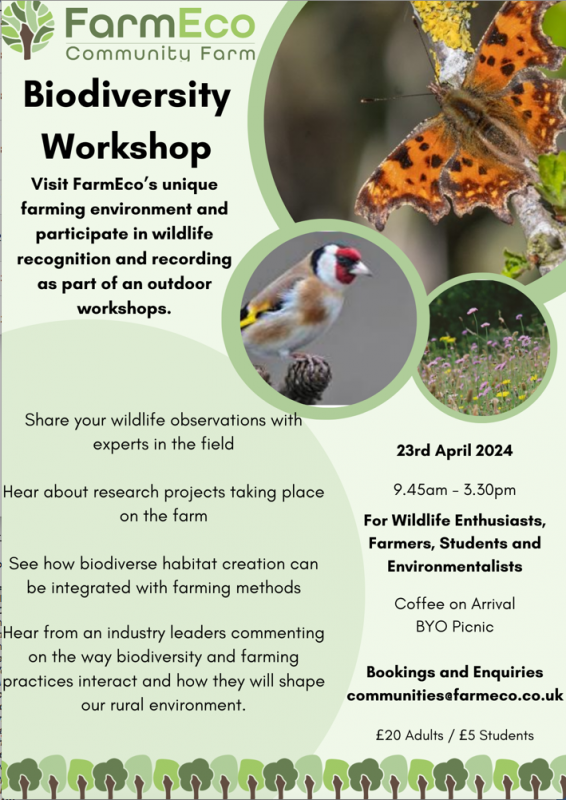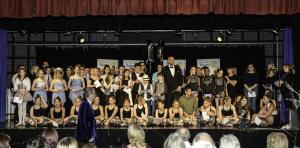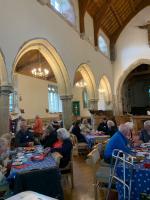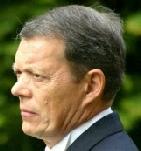FarmEco
Thu, Mar 14th 2024 at 7:00 pm - 9:00 pm
Farmland birds and wildlife biodiversity

Club members please log in for more information.
14th March 2024 FarmEco Professor David A. Walker
David started by asking us if we knew our farmland birds and the monitoring of wildlife biodiversity. A couple of years ago he knew very little on such subjects, having retired as Emeritus Professor of Paediatric Oncology at The University of Nottingham, specialising in serious rare diseases in children. He then came into contact with David Rose, a third-generation farm manager at Screveton Farm, who is also a Woodland Trust Ambassador who actively participates in agroforestry research and so a new journey began. Additionally, FarmEco Community Care Farm, which is part of the wider Screveton Farm, connects people with food and farming. It provides a shared outdoor space for people to learn about farming, the environment, and develop new skills. FarmEco is a registered Community Benefit Society with a vision to build a sustainable farming model that benefits both the community and the environment. They raise funds through various means, including shares, donations, grants, and sales of apple juice and vinegar. Their mission is to reconnect people to the land and the environment. They have a ‘Sheds’ group, do walks, various workshop events generally to encourage wildlife recognition in this unique farming environment.
He gave out some encapsulated pictures of the many birds and some of their survey results in a form of skills assessment, trying to establish whether we had a ‘casual interest’, a ‘birdwatcher’ or even a ‘twitcher’. He played some birdsongs to see if anyone recognised the birds singing. He then posed a question relating to the reduction in bird numbers, to each of the three tables of our members: 1. Does it matter? 2. What has changed? 3. Can the trend be reversed?
He showed maps of the farm with sheep fields, Forest bathing labyrinths, agroforestry field with striped rows of apple trees, conventional farm fields, woodland area, water feature and ‘Miyawaki’ section, consisting of an area about 30 m. x 10 m. trees planted 18 inches apart, which apparently grow faster.
He mentioned a paper by a Ph.D. student, Tom Staton, of Reading University about the reduction in bird numbers, posing the question is it caused by ‘Species energy hypothesis’ relating to food, seeds and hedges or Environmental, temperature issues (which seems to influence bird numbers more0
Alan Wilson gave a vote of thanks to David for his very entertaining and informative talk, having taught us, questioned us and we learnt about this fascinating subject which had been delivered with much enthusiasm. Club responded in the usual way RG
'What We Do' Main Pages:

We have now successfully run this event for 10 years. Full reports of each year are available under this main page
moreIf you like what we do as an organisation and are interested in volunteering with us, keeping up to date with our plans and future events then why not consider signing up as a friend of our Rotary Club
more
This is a monthly meeting open to visitors from Bingham, Radcliffe, Cotgrave and all villages in surrounding area.
moreThis committee are involved in planning now we can raise funds for our chosen charities
more
It's here that you can read what we've been up to in the last few months. For more information on our work in the local community, with our young people and internationally please access "what we do" section of this web site.
moreOur International Committee is involved with Polio Plus - a Rotary initiative to eradicate Polio, World-wide; Sand dams; Aqua Boxes; Shelter Boxes; Collecting used spectacles, and many other projects
moreHere you can read about the many meetings we've had during our formation as a Rotary Club. The early years are a little short on detail...
more
